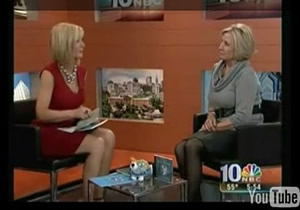 October is National Domestic Violence Awareness Month.
October is National Domestic Violence Awareness Month.
There are several kinds of abuse. If you or someone you know is being abused or might be being abused, get help.resources out there and they care. This is not something that should be “put off” until tomorrow. There are so many Tomorrow could be too late. There are warning signs of abuse that you should know.
Emotional or psychological abuse takes the form of verbal and non verbal actions by the abuser. The aim of emotional or physical abuse is to erode your feelings of self worth and lesson your ability to feel independent. If you are the victim of emotional abuse, you may feel like you are trapped in the relationship. You may even feel like you are totally dependent on the abuser. Emotional abuse can include things like screaming and yelling, name calling, shaming you, and blaming you for his problems.
Often the abuser will try to intimidate you and isolate you from friends and family. The abuser will attempt to control you any way possible. This controlling behavior may also include threats of physical violence.
The saddest part of emotional or psychological abuse is that often the one being abused doesn’t know that she is being abused. Often times she will say that she isn’t being abused because there are no visual signs of abuse. Emotional abuse can leave scars that run deeper than visual scars. Like any abuse, it usually gets worse in time and often turns into physical violence.
Physical abuse takes place when one person intimidates and controls by using physical violence. This can include but is not limited to actions like pushing, hitting, choking, throwing objects, using weapons. When people talk about domestic violence, they are often referring to the physical abuse of a spouse or intimate partner. Physical abuse is the use of physical force against someone in a way that injures or endangers that person. There’s a broad range of behaviors that come under the heading of physical abuse, including hitting, grabbing, choking, throwing things, and assault with a weapon.
Physical assault or battering is a crime, whether it occurs inside or outside of the family. The police have the power and authority to protect you from any kind of physical attack. If you are concerned about your safety find out how to get a Protection From Abuse order. (PFA)
Sexual abuse is common in abusive relationships. According to the National Coalition Against Domestic Violence, between one-third and one-half of all battered women are raped by their partners at least once during their relationship.
Remember that any situation that forces you to participate in unwanted, unsafe, or degrading sexual activity is sexual abuse. Forced sex, even by a spouse or intimate partner with whom you also have consensual sex, is an act of aggression and violence. Furthermore, women whose partners abuse them physically and sexually are at a higher risk of being seriously injured or killed. If you say “no,” even if you are married, that means “no.” Please don’t think anyone besides yourself should be in control of what you want or don’t want to do.
Economic or financial abuse Remember that an abuser’s goal is to control you, and he will frequently hurt you to do that. In addition to hurting you emotionally and physically, an abusive partner may also hurt you in the pocketbook. Economic or financial abuse may include any or all of the following:
- Controlling the finances.
- Withholding money or credit cards.
- Giving you an allowance.
- Making you account for every penny you spend.
- Stealing from you or taking your money.
- Exploiting your assets for personal gain.
- Withholding basic necessities (food, clothes, medications, shelter).
- Preventing you from working or choosing your own career.
- Sabotaging your job (making you miss work, calling constantly
Please do something if you suspect abuse. Call 911 if you are in eminent danger. Make a plan and prepare yourself. You do not deserve any kind of abuse. You have value and don’t ever forget that!
Photo from goodnight october

